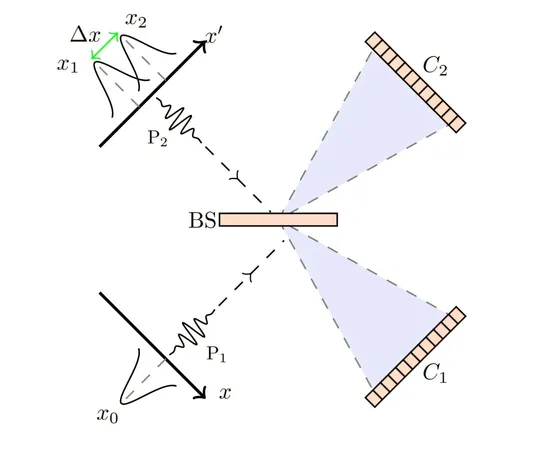
Revolutionary Study: Mediterranean Diet and Exercise Are Key to Protecting Bone Health During Weight Loss!
2025-04-22
Author: Charlotte
Unlocking the Secret to Stronger Bones
A groundbreaking study has revealed that combining a healthy diet with regular exercise can significantly enhance lower back bone strength, a crucial factor for spinal support and mobility. This research underscores an important message for those aiming to lose weight without compromising their bone health.
Aging and Bone Health: A Dangerous Connection
As we age, our bones naturally lose mineral density, raising the risk of osteoporosis and fractures—particularly in the hip and spine. Dr. Jesús Francisco García-Gavilán, a senior biostatistician at the University Rovira i Virgili in Spain, stresses the importance of maintaining bone health. Fractures in older adults can lead to diminished mobility, a reduced quality of life, and even increased mortality rates, making bone preservation vital for independent living.
Weight Loss: A Double-Edged Sword for Bone Strength
While weight loss can have numerous benefits, it can also negatively affect bone strength. Dr. Jordi Salas-Salvadó, a nutrition professor at the University Rovira i Virgili, explains that shedding pounds decreases the mechanical stress that bones need to remain strong. Inadequate calorie intake can lead to nutrient deficiencies, particularly in calcium, vitamin D, and protein, further jeopardizing bone health.
Navigating the Nuances of Bone Health During Weight Loss
The impact of weight loss on bone health is complex. Dr. Andrea Singer, chief medical officer of the Bone Health and Osteoporosis Foundation, emphasizes that while weight management is crucial for reducing risks associated with diseases like diabetes and hypertension, it is essential to find a balance that mitigates the potential downsides to bone strength.
The Role of Diet and Exercise in Strengthening Bones
In a detailed analysis, researchers studied 924 adults aged 55 to 75, all of whom were overweight or obese and exhibited symptoms of metabolic syndrome. Participants were split into two groups: a control group adhering to a Mediterranean diet without calorie restrictions, and an intervention group that followed the same diet but reduced their calorie intake by 30% while also meeting specified exercise goals.
The intervention group was tasked with achieving 150 minutes of moderate-to-vigorous activity each week, which included daily walking and strength training. After three years, women in this group experienced an impressive 1.8% increase in lumbar spine bone density, alongside weight loss of 2.5%. Men lost even more weight, averaging a decline of 3.4%. Although overall bone health measures did not show substantial improvement, the study concluded that an intentional combination of diet and exercise could preserve or boost bone density for older adults, particularly women.
Why Women Face Greater Risks for Bone Loss
Women are particularly vulnerable to osteoporosis due to various factors, including smaller bone size, longer lifespans, and hormonal changes associated with menopause. Dr. Singer emphasizes the importance of proactive measures to maintain bone health, warning that osteoporosis is often underdiagnosed and undertreated, which can lead to life-altering fractures.
Final Thoughts: Weight Loss With Bone Health in Mind
As the relationship between weight loss and bone health continues to be studied, it is clear that how one loses weight is just as important as the weight lost itself. The Mediterranean diet paired with regular exercise emerges as a winning strategy for enhancing bone strength, especially in older adults. Prioritizing bone health can help safeguard independence and quality of life as we age.









 Brasil (PT)
Brasil (PT)
 Canada (EN)
Canada (EN)
 Chile (ES)
Chile (ES)
 Česko (CS)
Česko (CS)
 대한민국 (KO)
대한민국 (KO)
 España (ES)
España (ES)
 France (FR)
France (FR)
 Hong Kong (EN)
Hong Kong (EN)
 Italia (IT)
Italia (IT)
 日本 (JA)
日本 (JA)
 Magyarország (HU)
Magyarország (HU)
 Norge (NO)
Norge (NO)
 Polska (PL)
Polska (PL)
 Schweiz (DE)
Schweiz (DE)
 Singapore (EN)
Singapore (EN)
 Sverige (SV)
Sverige (SV)
 Suomi (FI)
Suomi (FI)
 Türkiye (TR)
Türkiye (TR)
 الإمارات العربية المتحدة (AR)
الإمارات العربية المتحدة (AR)